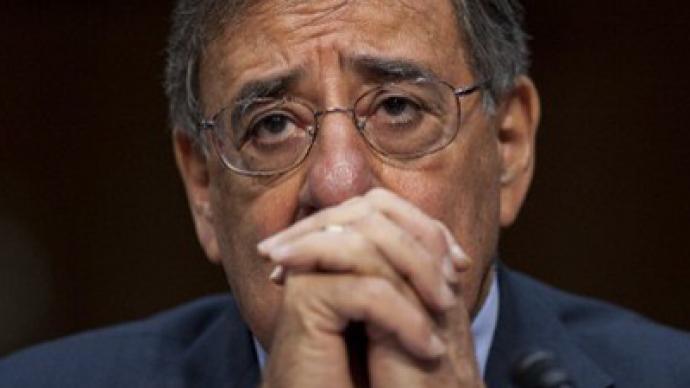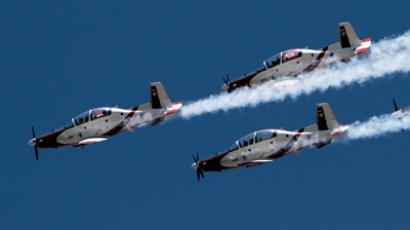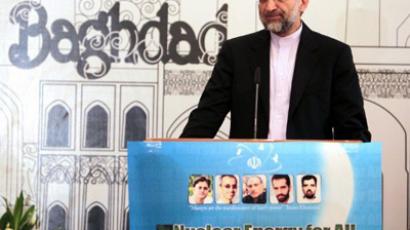Pentagon ‘prepared’ to attack Iran – Panetta

Leon Panetta has stated that the US is ready to do everything it can to prevent Iran from developing a nuclear weapon. The American envoy to Israel earlier said that the military option is “fully available” and the necessary planning has been done.
“We will do everything we can to prevent them from developing a weapon,” Panetta told ABC News. Panetta thus confirmed US Ambassador Dan Shapiro's comments on Israel's Army Radio on May 17, that Washington has a military contingency plan in case “diplomatic talks” fail to “pressure” Iran successfully. Shapiro said the option is not only “fully available", but “ready.”Now, a week on, Panetta said US officials “have plans to be able to implement any contingency we have to in order to defend ourselves.”However, Panetta said that the US still hopes that the conflict over Iran’s nuclear ambitions can be “resolved diplomatically.”Israel is the only country insisting on using military force to pressure Iran away from a suspected atomic weapon. Tel Aviv reaffirmed its position on May 23, the first day of a new round of talks between the P5+1 group and Iran. Defense Minister Ehud Barak said the negotiations only let Iran to buy time and get in the way of Washington and Tel Aviv. The next day, even before the negotiations were officially ended, Israeli leadership backtracked on a promise not to attack Iran before America’s November presidential election. Meanwhile, IAEA suspicions towards Iran remain unresolved. Straight after the two days of negotiations in Baghdad, the IAEA suspected that Iran had raised its enrichment threshold slightly closer to weapons-grade level. The reason for such accusations was traces of uranium enriched up to 27 per cent reportedly found at the Fordo plant. However, Iran responded that the find was a technical glitch.Ali Asghar Soltanieh, Tehran's envoy to the IAEA, said the finding’s been blown out of proportion for political reasons.Iran’s nuclear chief Fereidoun Abbasi said on Sunday that there was no need to halt production of uranium enriched to 20 per cent, as Iran produces “only as much 20 per cent material” as it needs. The statement came in response to the group of six's demands that Iran suspend 20 per cent enrichment in exchange for a US-supported package that would include radioactive material and spare civilian plane parts. But Tehran said they offered too little in return. Abbasi also touched upon a possible visit to the Parchin military site by IAEA observers, saying it would not come any time soon. “We haven’t been convinced yet. No reasons and documents have been presented to enable us to arrange a visit to Parchin, which is a military site,” he was quoted by ISNA as saying.














